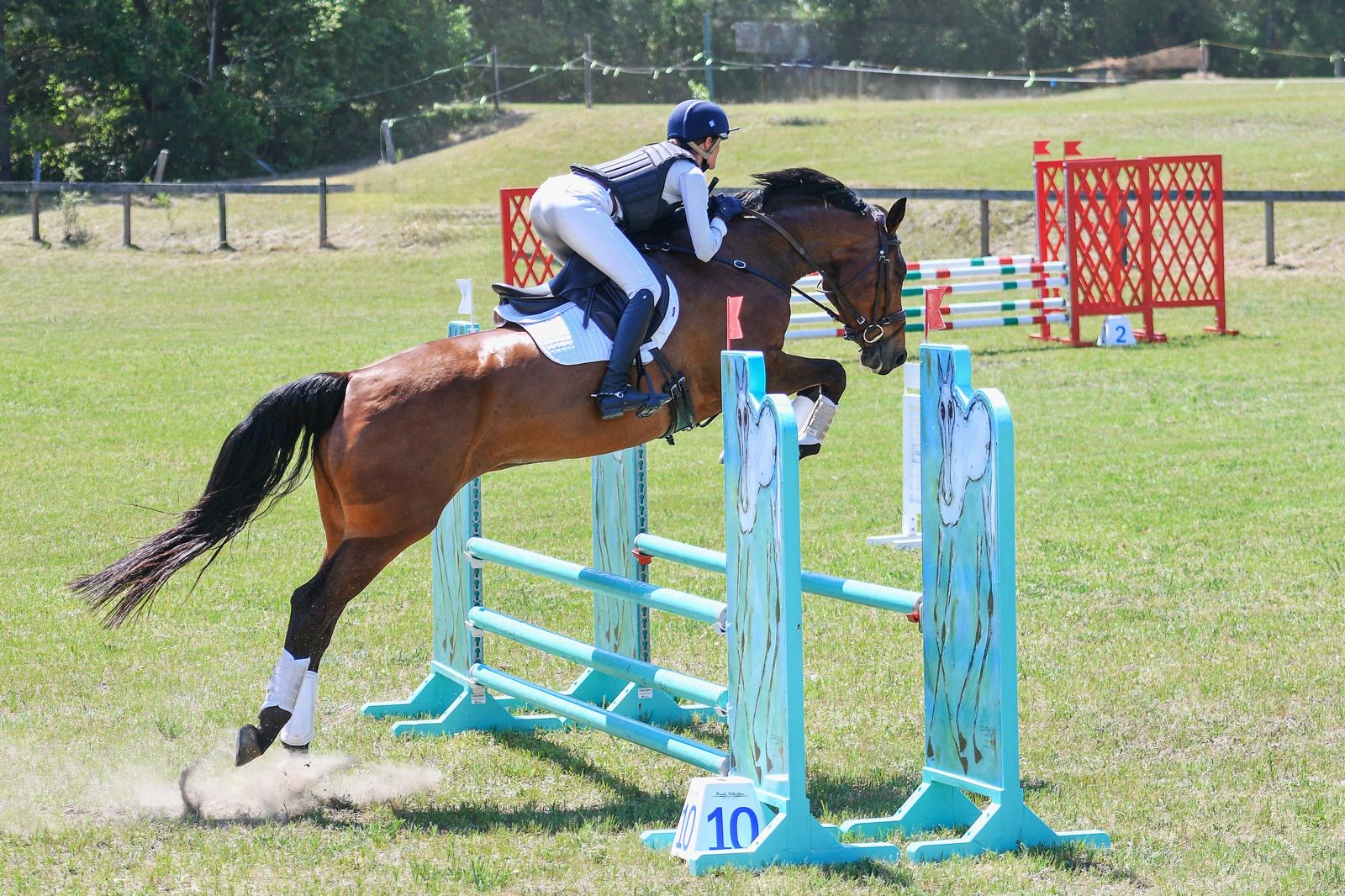
Sharon White, Sentinel-supported rider, and Claus 63. Photo by Sally Spickard.
Eventing horses are true athletes—but they need more than talent and training to succeed. The right nutrition plays an integral role in helping them stay strong, energized and able to recover quickly after competition, and the right combination of forage, feed and potential supplements can make the difference between a horse that merely gets through a competition and one that performs at its peak. Understanding these unique nutritional demands is key to developing a feeding program that supports long-term success.
Balancing Energy Sources: Forage, Fiber, and Feed
Performance horses require a lot of energy, but more importantly they require balanced energy sources to meet their athletic endeavors. Knowing the roles of forage, fiber and feed is essential for their health and performance.
Forage: The Foundation of the Diet
According to Kristyn Sturken, Product Manager for Sentinel® Horse Feed, “High-quality hay and pasture should constitute the majority of a performance horse’s diet. It provides essential fiber necessary for proper digestive function. Start with forage (hay and pasture) and then build your feed program from there.”
[Listen to our interview with Kristyn Sturken on The Go Eventing Podcast here]
Proper digestive function also plays a key role in hydration and electrolyte balance, helping to prevent dehydration and muscle fatigue during performance. Additionally, a well-functioning hindgut is vital for nutrient absorption and may reduce the risk of digestive upsets which can occur especially in high-stress, high-intensity equine athletes.”
Insufficient forage intake or compromised gut health can lead to decreased energy levels and poor recovery which may contribute to an increased risk of colic or laminitis, negatively impacting a horse’s ability to compete.
Fiber for Sustained Energy Release
Quality fiber sources like beet pulp and soy hulls help maintain gut function and support a healthy microbial population When this fiber breaks down in the hindgut, it creates a slow and steady energy release, which helps maintain endurance throughout training and competition. Without adequate fiber, horses may experience energy crashes, increased susceptibility to dehydration and a greater risk of digestive concerns like colic, all of which can compromise their ability to perform.
Feed to Meet Elevated Energy Demands
Grains like oats, barley and corn are traditional energy-dense feeds, but their high starch and sugar content can cause rapid glucose spikes. While these quick bursts are beneficial for equine athletes such as racehorses that rely on anaerobic energy, it may not be ideal for eventing horses that require stamina over an extended duration. In contrast, high-fat feeds that incorporate rice bran, flaxseed, and/or vegetable oil provide a longer-lasting fuel source without sugar spikes. They also support muscle function and help delay fatigue during intense exercise or prolonged competition.
Protein and Muscle Health
Just like human athletes, horses need protein to build and repair muscle—especially after a long competition. Amino acids are the building blocks of protein, but not all amino acids are equally present in an equine diet. Limiting amino acids, such as lysine, methionine and threonine, are not produced by the horse and must be provided through feed.
When these essential amino acids are in short supply, the horse’s ability to utilize other amino acids is restricted, which can negatively impact muscle development, repair and overall performance. Signs of an amino acid deficiency may include poor topline development, muscle loss despite adequate caloric intake, delayed recovery after exercise and lack of stamina. Behavioral indicators may include reluctance to engage in strenuous activity, difficulty building or maintaining muscle mass and a dull coat.
“Protein plays a vital role in muscle development, tissue repair and the horse’s overall health, but it works best as part of a well-rounded diet,” Sturken says. “It’s important to balance protein with other energy sources to meet the horse’s overall nutritional needs without overloading.”
Ensuring a balanced intake of essential amino acids is critical in supporting peak athletic performance, strength and recovery. Incorporating high-quality protein sources like soybean meal or alfalfa ensures the availability of essential amino acids necessary for muscle maintenance and repair.
Hydration and Electrolytes: Don’t Skip the Basics
Because they lose a significant amount of fluid through sweat, performance horses must maintain adequate water intake and electrolyte balance. Electrolytes are minerals that carry an electric charge when dissolved in water and are vital for bodily functions like nerve transmission, muscle contraction and fluid balance. If not replenished, electrolyte depletion may lead to dehydration and muscle cramps. Electrolyte imbalances can also contribute to fatigue, reduced nerve function and decreased muscle efficiency.
• Encourage water intake to stimulate thirst and promote hydration.
• Monitor sweat loss in high temperatures, humidity and intense exercise and adjust electrolyte supplementation accordingly.
o Normal sweating – lightly moist, shiny coat, especially under the saddle. o Sweating with increased activity – sweat spread onto the neck, chest and legs.
• If needed, provide a well-balanced electrolyte supplement to help replenish minerals lost during exercise.
• Forage and hay provide a major source of potassium and help maintain hydration during increased activity levels.
What About Vitamins, Minerals, and Supplements?
Vitamins and minerals, though required in smaller quantities compared to macronutrients, are indispensable for a competitive horse’s health, energy metabolism and overall performance. For example, Vitamin E and Selenium work together as antioxidants to protect muscle cells from damage caused by stress. Balanced intake of vitamins and minerals ensures physiological processes function properly.
Before adding anything to a horse’s diet, it’s important to note their body condition and take inventory of their current nutrition intake. This will help determine if a supplement is needed. In many cases, with good quality hay and adequate feed, a horse won’t need one. When evaluating different products, consider the horse’s workload, discipline and special nutritional requirements.
Proper nutrition is the foundation of a successful eventing horse. A carefully balanced diet that includes high-quality forage, fiber, fat-based energy sources, essential amino acids and proper hydration ensures optimal performance, endurance and recovery. By understanding a horse’s unique needs and making informed nutritional choices, owners can help their equine athletes reach their full potential in competition.





















